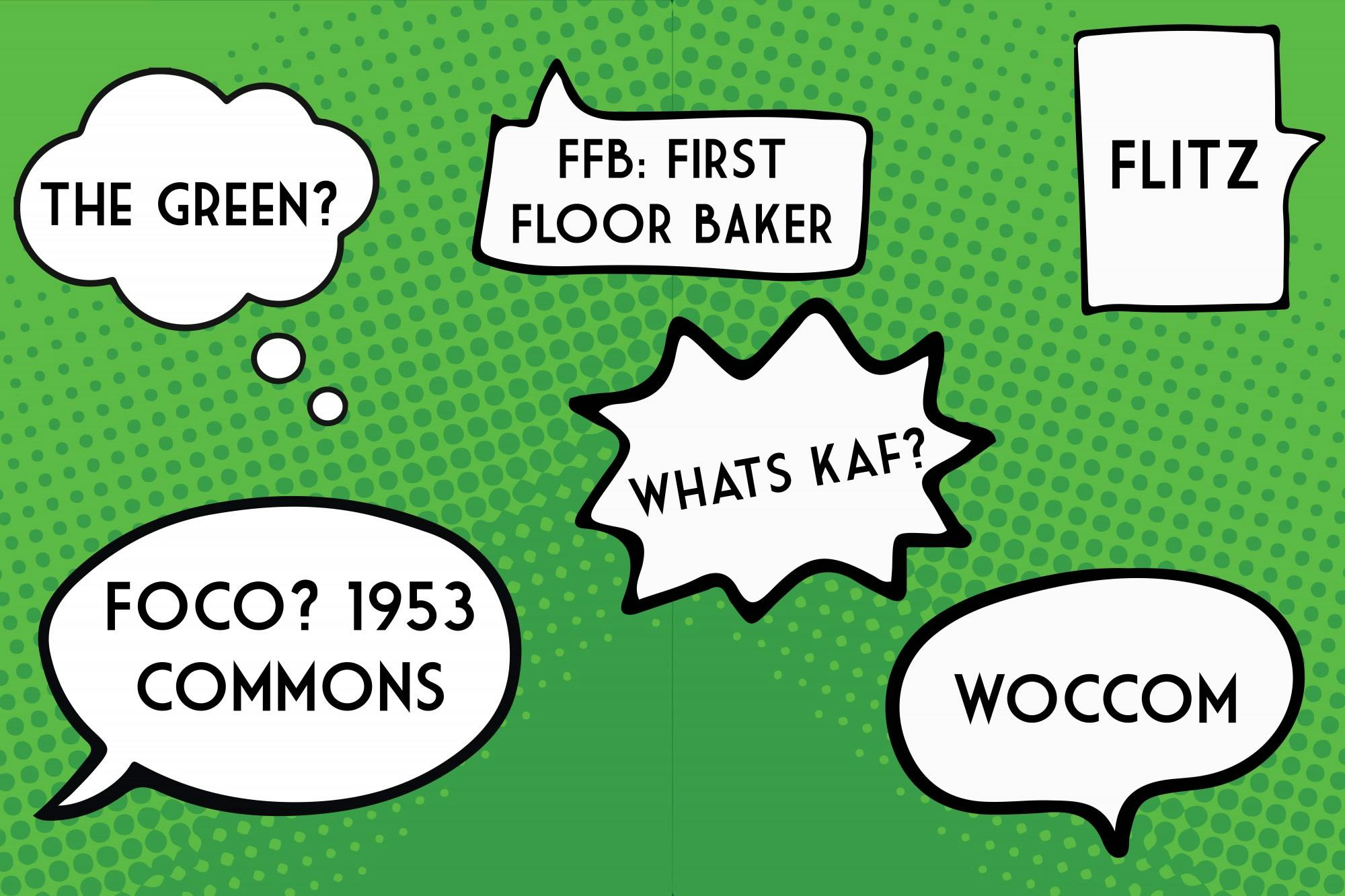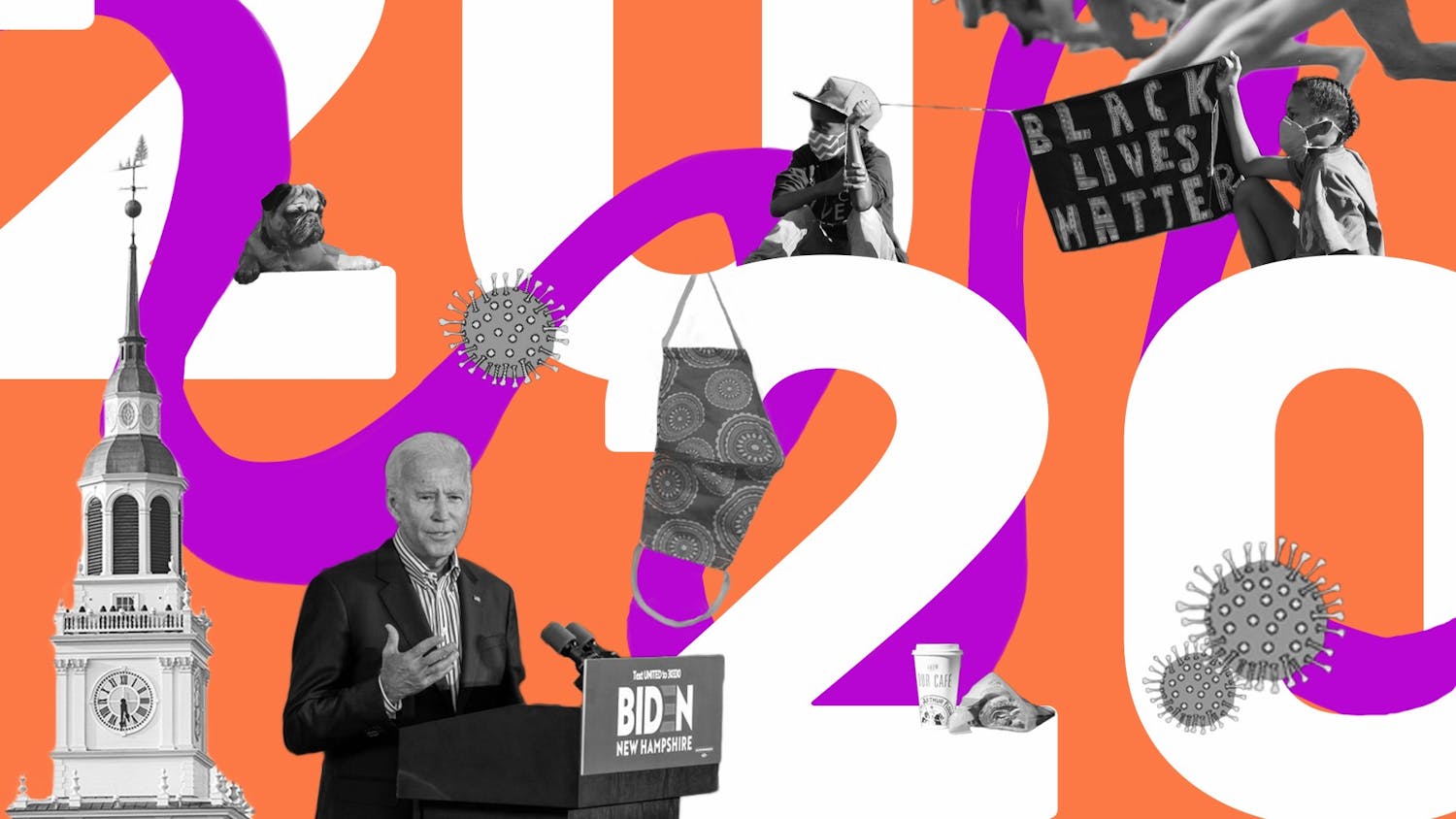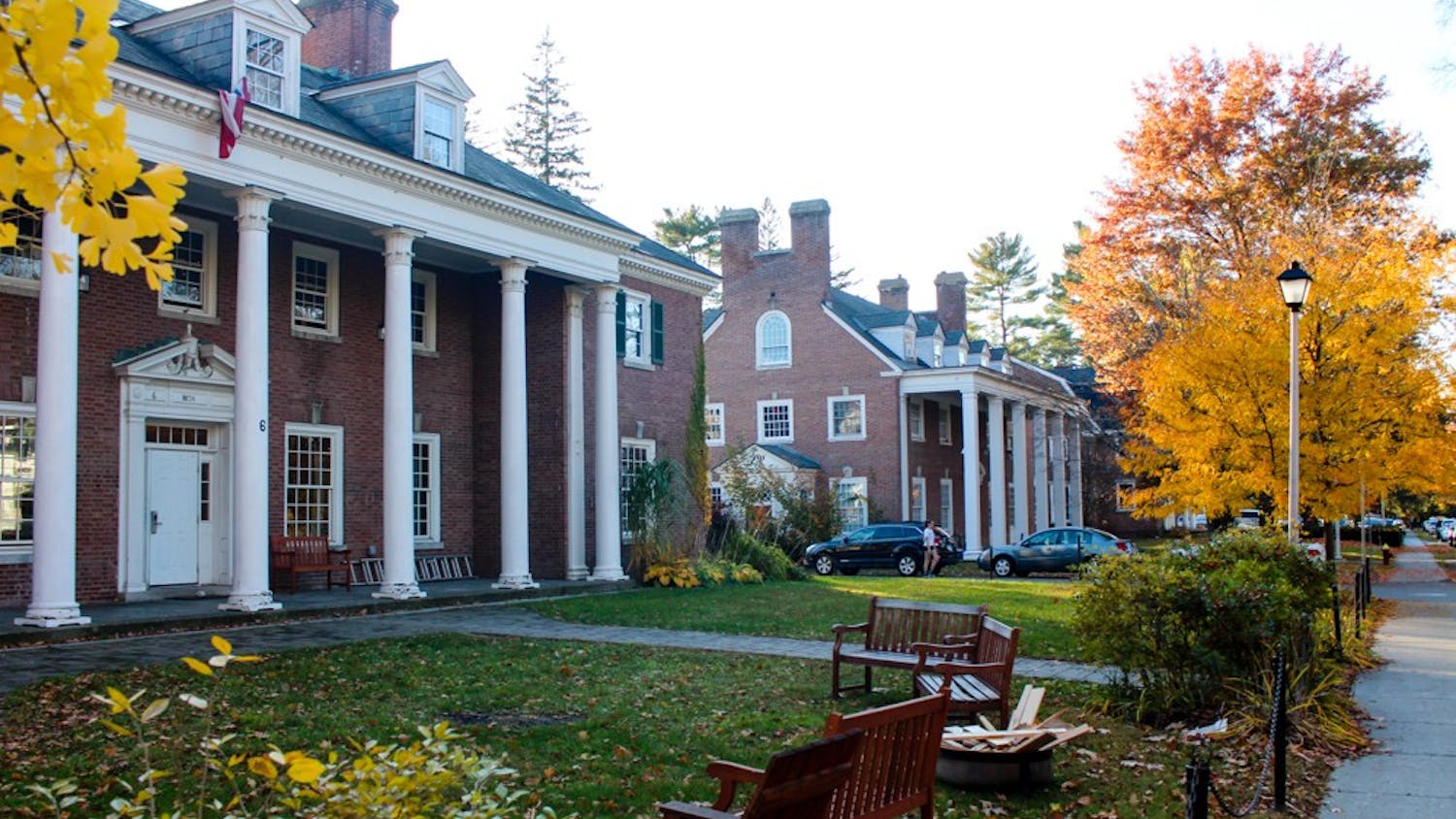Dartmouth is known to all for its community and culture of tradition. The homecoming bonfire, the BEMA twilight ceremony for freshmen, the annual campus-wide snowball fight, First-Year Trips — the list of cherished traditions is long. But perhaps no tradition is as ubiquitous in the everyday lives of Dartmouth students as Dartmouth slang. It’s no secret that students have a proclivity for embracing an expansive, unwritten dictionary of lingo, be it in reference to spaces like the dining hall (“Foco”) and the first floor of the Baker-Berry Library (“Blobby”) or to attributes of other students (the dreaded label of “facetimey”).
Most upperclassmen confidently and comfortably use slang in their day-to-day lives without even realizing that it’s unique to Dartmouth. Gabriella Smith ’22 didn’t realize the extent to which she had begun speaking a new language until a non-Dartmouth friend came to visit.
“My friend came here freshman year, and I was just talking to my friend,” Smith said. “[She was] like, ‘What are you talking about? You sound insane.’”
Most of this lingo has become so ingrained in the vocabulary of Dartmouth students that the words are uttered without even a second thought. Smith spoke of throwing around phrases like “need one at now” — needing an immediate partner for pong or another activity — without realizing that no one outside of Dartmouth would understand what she meant.
Simple terms are easy to pick up on. Grace Schwab ’24, as a freshman, has already picked up on the way that Dartmouth students refer to different class years.
“Probably the one that I use the most is just how we refer to different classes, like ’24s, ’23s,” Schwab said. “When I talk to my professors, they're always like, ‘Can you just say freshmen, sophomore, junior, senior?’ They don’t recognize the years.”
Some members of the Class of 2024, though, said that the slang has been difficult to pick up on. Most students learn it through upperclassmen friends and Trip leaders, but since remote learning began, interactions with upperclassmen have been fewer and farther between than usual for the Class of 2024. The lack of Trips, in-person club meetings and the absence of half of the student body on campus has contributed to a lack of exposure to upperclassmen at Dartmouth.
Interacting with older students is one of the only ways to learn the lingo, as professors tend not to use them and there is no formalized catalogue of Dartmouth slang.
Schwab said she has recently picked up some new words from interacting with a senior, like “blobby,” an endearing nickname for Baker lobby, or “chards,” a pseudonym for Richardson hall.
However, slang is only as meaningful as its pervasiveness. So, even when a few freshmen here and there are able to pick up the terms, they often fall on deaf ears.
“I've mentioned Blobby and some people have a blank face, so I don't use it,” Schwab said. “So then I say, ‘Oh, the checkered room in the library.’ I have to be specific.”
Schwab also mentioned a formerly popular Dartmouth-specific term that she isn’t quite sure about: KAF.
“I know that there used to be a place called KAF, and they talked about that a lot,” she said. “But I don't know if that's still a thing or anything. And I think that refers to King Arthur Flour.”
The lack of knowledge about the specific locations can be confusing and can disrupt social norms, as terms that are often used to describe these places are meant to carry with them the implication of how to behave in those spaces. Smith described the experience of a friend who realized how little the freshmen understand about social norms.
“One of my friends was studying in One Wheelock, and ’24s don’t know it’s a quiet place, and they were just being so loud talking at full volume,” Smith noted. “It’s about etiquette; it’s almost like going to a new country,” Smith noted.
Sadly, this lack of knowledge can cause anxiety for some students. This rings true for Kai Zhou ’24, who is currently experiencing his first term on campus this spring.
“I was really afraid to go into the library for the longest time, because I'm like, what if I walk into, I don't know, some forbidden section of the library?” Zhou said. “What if I accidentally walk into the closet, instead of like, the place I’m trying to go, and everybody thinks I'm an idiot?”
Even for freshmen who live on campus and have familiarity with study spaces, only a few buildings are well-known, like dining halls and dorms. The vast majority of courses offered this term have been remote rather than in-person, and few students have been able to secure spots in the in-person courses. Because of COVID-19, most academic buildings have not been used by students at all and none of the freshmen have had the experience of moving from academic building to academic building as they go from class to class.
With the return of an in-person campus in the fall, hope is on the horizon for a return to the normalcy that upperclassmen expect. Though the freshmen may be out of the loop now, the lack of lingo won’t last for long. They may seem like mere words, but the language that upperclassmen so flippantly use is also part of their ability to build community with each other. Hopefully, the inclusive spirit that slang gestures create will transcend boundaries of classes and create an open environment for the Class of 2024’s first term on a full campus.
“[Dartmouth slang] is one of those things where even if you run in a different social circle than somebody, that's one thing that you had, if you start talking to them, they're still gonna know you're from Dartmouth,” Smith said. “Even if I don't know you, you know we're meeting up at this place, because you call it that.”




